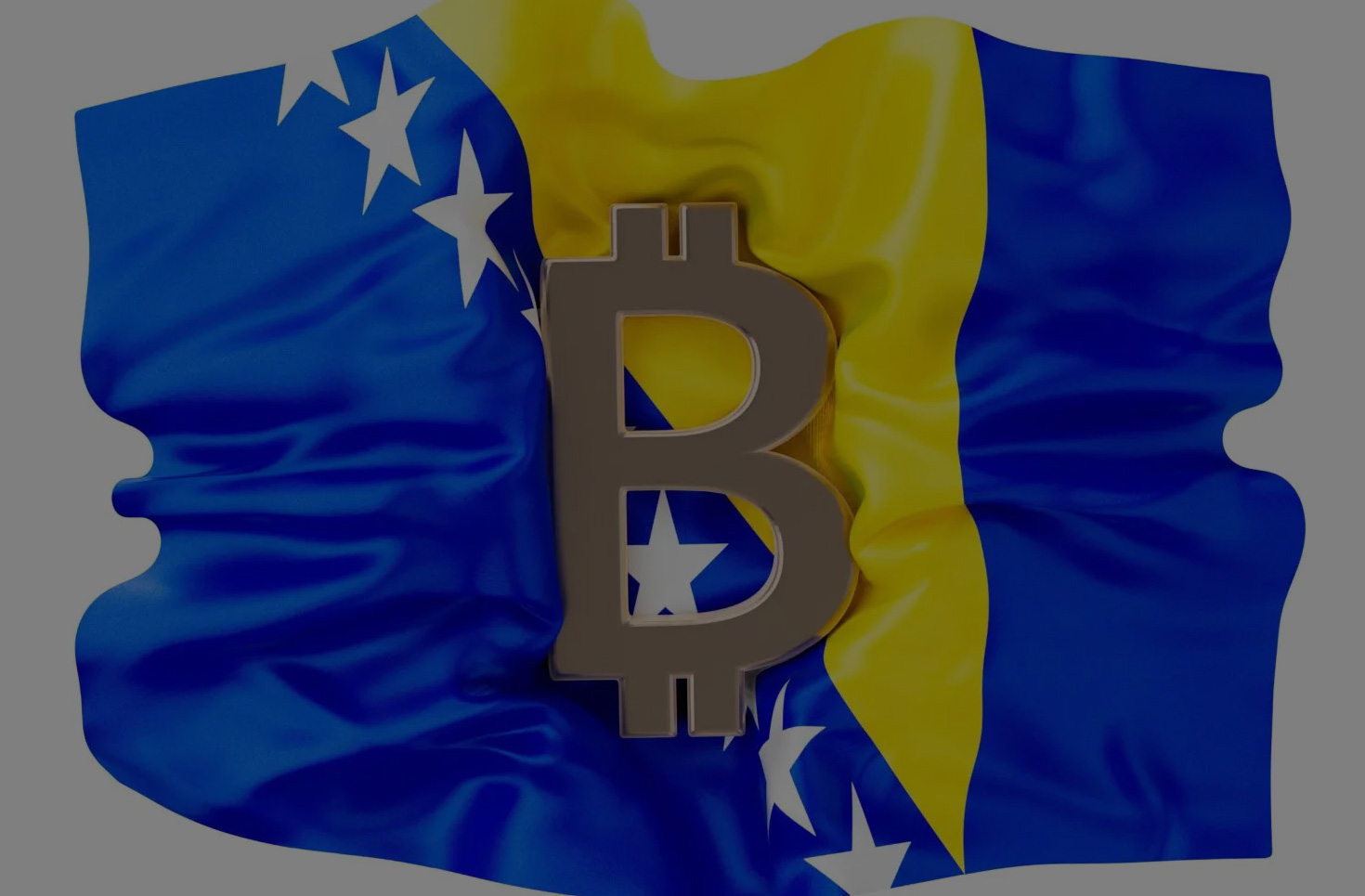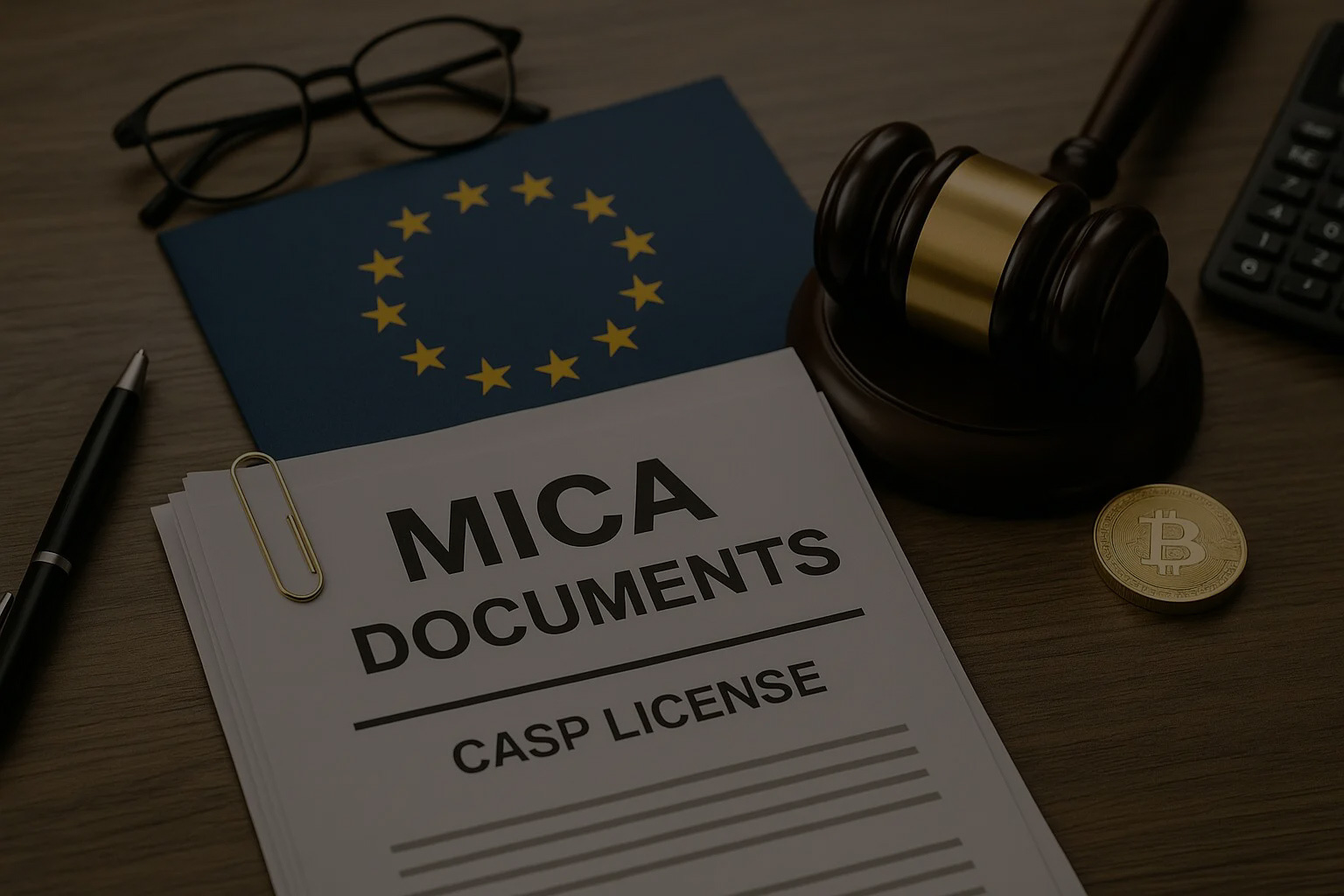In the past ten years, the combination of blockchain technology and the concept of web 3.0 has made great progress, bringing revolutionary changes to our daily lives. Not only did they fuel the growth of cryptocurrencies like Bitcoin and Ethereum, but they also introduced us to ground-breaking concepts like digital assets, tokens, smart contracts, NFTs, and ICOs.
Blockchain: The Financial Revolution
In fact, the ripple effects of blockchain innovation are becoming increasingly apparent every day, especially in the financial sector. A large number of modern payment systems and investment mechanisms are intricately linked to digital assets and cryptocurrencies. Blockchain provides an enhanced and transparent approach to transaction management, negating the role of centralized intermediaries and laying the foundation for next-generation financial breakthroughs such as decentralized finance (DeFi) and digital trading platforms.
Virtual Asset Supervision: Balancing Innovation and Investor Safety
Guiding the blockchain and cryptocurrency regulatory process is a complex and evolving task. Current legal frameworks and regulatory guidelines are struggling to keep pace with the rapid developments in virtual assets, fintech and financial innovation. Global regulators are grappling with the challenge of balancing investor safety with fostering innovation. Different countries adopt different strategies: some countries prefer a total ban (such as China), others emphasize strict regulation (such as the United States), and a few countries support cryptocurrencies nationwide (such as El Salvador).
Cryptocurrency Regulation in the European Union
The European Union's pioneering efforts to harmonize the regulatory environment for digital assets
Until recently, there was no uniform regulatory structure for cryptocurrencies and digital assets within the EU. This makes it imperative for each EU country to independently develop rules and regulations for the emerging cryptocurrency industry, leading to a patchwork of blockchain technology and cryptocurrency investment policies.
5AMLD: A Leap Forward to Integrated Regulation in Europe
To bridge this regulatory gap and protect consumers and investors, the EU has embarked on a journey to create a standardized regulatory framework. In 2019, they introduced the Fifth Anti-Money Laundering Directive (5AMLD). The directive expands the scope of the AML/CFT regulation to include cryptocurrency exchanges, trading platforms and custodial wallet providers. As a result, crypto service entities are required to implement robust customer identification processes, transaction monitoring, and strengthen anti-money laundering activities.
EU Countries: Choosing Between Strict Control and Resilient Strategies
However, 5AMLD does not fully coordinate the stance of EU countries on the cryptocurrency industry. Some jurisdictions have adopted stricter regulation, driven by regulators (the German Federal Financial Supervisory Authority (BaFin), the Estonian Financial Intelligence Unit (FIU)). At the same time, others prefer a relaxed regulatory environment (FNTT in Lithuania), or simply a mandatory requirement to publish basic notices to start activities in the cryptocurrency space (FAU in the Czech Republic, KAS in Poland).
MiCa: Developing a Course for Cohesive Cryptocurrency Governance
Given that the decentralized approach contradicts the basic spirit of the EU and introduces a potential AML/CFT loophole, the European Commission in 2019 set out to draft the MiCa Directive, Crypto Asset Markets, envisaging a unified regulatory footprint for all EU member states.
Mica Directive
Crypto Asset Market Regulation: A New Chapter in Cryptocurrency Regulation in Europe
The 2023/1114 Crypto Asset Market (MiCa) Regulation was developed in accordance with Directives 2015/849 (AML Directive 4, 4AMLD) and 2018/843 (AML Directive 5, 5AMLD) and guidance provided by the Financial Action Task Force (FATF). The draft directive, overseen by the European Commission, was first released to the public in September 2020 and becomes the cornerstone of a comprehensive framework aimed at regulating the virtual assets and digital finance industry.
MiCa: balance between innovation and oversight
Crypto asset market regulation aims to incorporate a series of effective measures into the EU's unified legal system, not only to cultivate the potential and innovation dynamics of the digital finance industry, but also to ensure fair competition among crypto enterprises, while mitigating financial and anti-money laundering/counter-financing of terrorism risks.
Key principles of MiCa: from transparency to consumer protection
Within the MiCa Directive, uniform standards are developed in the following areas:
(A) transparency and disclosure requirements for the issuance, offering to the public, and allowing crypto assets to be traded on crypto asset trading platforms;
(B) the authorization and supervision of crypto asset service providers, asset reference token issuers and electronic currency token issuers and the requirements for their operation, organization and governance;
(C) requirements for the protection of crypto-asset holders in the issuance, offering to the public and permitting trading of crypto-assets;
(d) requirements for the protection of cryptographic asset service providers' customers;
(E) measures to prevent insider trading, unlawful disclosure of insider information, and market manipulation related to crypto-assets to ensure the integrity of the crypto-asset market.
MiCa and the rules of travel: a double whammy on unregulated terrain
After years of deliberation and negotiation by lawmakers, the European Parliament approved the Crypto Asset Market Regulation on April 20, 2023. In addition to MiCa, influenced by the FATF, the 2023/1113 TFR Directive (Regulation of Information on the Transfer of Funds and Certain Crypto Assets), commonly referred to as the "Travel Rules", was adopted ". The regulation defines standards for information required for currency transfers and crypto-asset transactions, and aims to facilitate more efficient tracking of virtual currency transactions.
When will the Mica Regulations come into force?
The MiCa provisions are expected to be implemented between the end of 2024 and the beginning of 2025.
The final version of the MiCa Regulation was disclosed in June 2023 and officially endorsed by the European Commission. The directive's provisions relating to stablecoins such as asset reference tokens (ART) and electronic money tokens (EMT) will come into effect in June 2024. MiCa's regulations on the regulation of cryptocurrency business activities will be binding on market participants from January 2025.
Who is governed by the mica statute?
In the MiCa remit: Who is governed by the new directive?
The Regulation of the Crypto Asset Market (MiCa) aims to oversee the operations of cryptocurrency service providers and issuers of crypto assets in the EU. As such, miCa is primarily targeted at crypto companies that offer a range of services related to cryptocurrency exchanges as well as offering cryptocurrency storage and management services. In addition, the MiCa directive will supervise issuers of various tokens, in particular asset reference tokens (ART) or securities tokens and electronic money tokens (EMT).
MiCa in action: what awaits the European crypto enterprise?
The enactment of the crypto asset market will have a profound impact on European cryptocurrency exchanges, cryptocurrency trading platforms, managed crypto wallet providers and various token issuers. As a result, cryptocurrency service providers are required to comply with a set of norms and regulations, including licensing requirements, transparency, disclosure, risk management and corporate governance standards.
Crypto companies (CASP or Crypto Asset Service Providers)
The provisions of the MiCa regulations will be introduced in early 2025 and will most strongly affect the crypto industry sector that provides crypto-asset-related services to retail customers, namely cryptocurrency exchanges, trading platforms and custodian wallet services.
More precisely, according to the Crypto Asset Market Directive text, the following crypto company activities fall under the new legal framework:
(A) provide custody and management of crypto assets on behalf of clients;
(B) the operation of crypto asset trading platforms;
(c) the conversion of crypto-assets into funds;
(d) the exchange of crypto-assets for other crypto-assets;
(e) execute orders for Crypto Assets on behalf of customers;
(f) placement of crypto assets;
(g) receiving and transmitting orders for crypto assets on behalf of customers;
(h) Recommendations to provide crypto assets;
(I) provide portfolio management of crypto assets;
(j) Crypto Asset Transfer Services on behalf of clients;
The MiCa regulation aims to ensure the same strong protection for retail customers as traditional financial markets. The overall purpose of this measure is to increase the transparency and stability of the crypto-asset market, while enhancing confidence in the cryptocurrency and virtual asset space.
Token and Crypto Asset Issuers
MiCa is committed to ensuring that crypto asset issuers meet all transparency and disclosure requirements when launching any virtual assets to the public or considering listing such assets on trading platforms, safeguarding the interests of investors and market stability.
Asset Reference Tokens (ART)A crypto-asset designed to maintain a stable value by reference to the price of multiple fiat currencies, one or more commodities, one or more other currencies as a legitimate means of payment.
MiCa requires ART issuers to comply with strict capital and corporate governance requirements to ensure transparency of the assets that underpin the value of tokens.
Electronic Money Tokens (EMT)It is a cryptographic asset that is primarily used as a medium of exchange. Its stable value depends on the value of legal tender, which is considered a legitimate means of payment.
EMT issuers are expected to follow similar standards as traditional e-money issuers in the EU, including capital, licensing and corporate governance provisions.
Through such measures, regulators aim to ensure that consumers and investors are properly informed about the risks and characteristics of each crypto asset type in which they are involved.
How about utility tokens?
Utility tokens or functional tokens represent a unique class of crypto assets. They are designed to provide specific functionality within a specified blockchain platform or application.
According to MiCa regulations, if utility tokens do not meet the definition of a crypto asset, such as ART or EMT, they may circumvent the directive's strict boundaries. Nevertheless, depending on the token's architecture and functionality, it may still fall under the jurisdiction of other legal and regulatory frameworks.
For example, if a utility token is marketed as an investment product, or its sale can be considered a fundraising, the regulator may classify it as a security or similar financial instrument and be subject to relevant regulations.
CASP Requirements
What Cryptocurrency Companies Should Know to Get a CASP License in the EU?
Under the Market for Crypto Assets (MiCa) Directive, a comprehensive set of standards and requirements is outlined. These are crucial for participants in crypto-asset-related services, which aim to increase transparency and stability in the EU's innovative fintech sector.
CASP activity authorization
All CASPs operating within the jurisdiction of the European Union must obtain a cryptocurrency license from the relevant EU member state. The specific details and procedures for this license may vary depending on the state, the type of service provided and the size of the operation. CASP Charter
Capital Requirements
According to MiCa regulations, higher capital requirements are imposed on the registered capital of CASP. These standards primarily address the need to ensure the stability of financial services, protect the rights of customers, and provide a barrier to entry into the cryptocurrency services market. This barrier protects the industry from temporary and amateur service providers.
€ 50,000Applies to the following services:
execute orders on behalf of customers;
placement of crypto assets;
providing crypto asset transfer services on behalf of clients;
Receive and transmit orders for crypto assets on behalf of customers;
Provide advice on crypto assets;
Provide crypto asset portfolio management.
€ 125,000The following services are involved:
Provide custody and management of crypto assets on behalf of clients;
exchange of funds with crypto assets;
Exchange crypto assets for other crypto assets.
€ 150,000Applies:
In addition, a new regulation requires issuers of tokens backed by assets (ART) to maintainEUR 350,000The minimum capital. This is intended to ensure the necessary reserves and financial stability of the issuer.
Anti-Money Laundering Policy
CASP entities are mandated to develop and implement robust anti-money laundering policies that focus on detecting, assessing and managing the risks associated with money laundering and terrorist financing. Crypto businesses must also establish precise customer identification procedures, conduct ongoing crypto transaction monitoring, and report any suspicious activity.
Operation authorization
Service providers must approve and integrate measures to ensure business continuity and monitor operational risks. CASP needs to devise ways to effectively manage IT threats, including cybersecurity-related risks.
Customer Communication
CASP institutions must inform clients of the full risks involved in investing in crypto assets. Service providers also have an obligation to maintain pricing transparency and disclose all fees and charges.
Collision resolution
CASP entities need to have effective mechanisms to resolve conflicts between customers and service providers quickly, thus avoiding court interference.
Data Storage
Cryptocurrency organizations are mandated to protect customers' personal data storage and must comply with all GDPR-compliant data protection requirements.
Customer Asset Security
Cryptocurrency service providers must clearly separate customer funds from the company's own resources. In addition, they are forced to take measures to ensure the security of digital wallets and other digital asset storage tools.
Territorial Standard
Senior executives and officials integrated into the CASP organizational structure should have the necessary experience, professionalism and maintain an impeccable business reputation.
Staff training
CASP is obliged to ensure that its employees receive regular training on best practices in anti-money laundering, terrorism financing countermeasures, risk management and cybersecurity.
For cryptocurrency companies operating in the EU, a thorough understanding and strict compliance with the above regulations is essential. In the dynamically evolving crypto-asset market landscape, compliance with the MiCA Directive ensures transparency, security, and builds trust between customers and regulators.
ICO Key Points
Guided ICO: Key Regulations and Principles
The concept of the EU-wide MiCA Regulation (Crypto Asset Market Regulation) is to foster a cohesive crypto asset regulatory paradigm. Inherent in the directive are specific guidelines tailored for initial coin offerings (ICOs)-a way to secure investment through the issuance of new digital tokens or cryptocurrencies.
The following outlines the key ICO benchmarks mandated by the MiCA regulations:
Documentation Blueprint (White Paper)
Every ICO must plan a "white paper" or similar basic document. This manuscript should demonstrate clarity and avoid investor ambiguity, providing comprehensive data for potential supporters. The basic content includes token attributes, technical complexity, issuer details, project summary, associated risks, and other salient parameters.
Customer Review (KYC)
The ICO coordinator is responsible for conducting customer identity verification activities and complying with anti-money laundering (AML) and counter-terrorism financing (CFT) protocols.
Transparency assurance
ICO promoters are expected to advocate for transparency and disseminate relevant data on fund mobilization, distribution dynamics, project evolution and future prospects.
Risk narrative
ICO stakeholders should be carefully aware of the potential dangers synonymous with investment in crypto assets, including the possible complete confiscation of capital.
Fund Division
The resources accumulated through ICOs should be clearly maintained and separated from the operating coffers of ICO curators, thereby enhancing investor protection and transparency.
Promotion Ethics
All ICO-centric marketing campaigns and communications should resonate with integrity, reflecting the content and spirit of the white paper.
Progressive Report
ICO organizers may be obligated to issue regular notes describing project milestones and the strategic use of the funds raised.
The purpose of developing such guidelines is to support investor protection, emphasize transparency, and enhance trust in the crypto-asset industry. However, when charting an ICO trajectory or considering an investment, the wisdom of liaising with legal experts in the field must be emphasized.
Supervision authority
From ESMA to National Institutions: Exploring the Cryptocurrency Regulatory Landscape
The MiCA Regulation (Crypto Asset Market Regulation) is an EU-wide regulatory framework for fundamental crypto assets. The core mission of miCA is to ensure investor protection, market stability and prevent the misuse of crypto assets for money laundering or terrorist financing.
Within the purview of MiCA, the highest regulatory entity for crypto assets in the EU isEuropean Securities and Markets Authority (ESMA)In addition, a range of national regulatory bodies throughout the EU Member States are actively involved in the application and supervision of the Directive at the grass-roots level.
The following is an overview of the prerogatives and responsibilities of national regulators under ESMA and MiCA:
License Dynamics
ESMA and national regulators are responsible for tailoring the licensing, renewal and revocation process for Crypto Asset Service Providers (CASP).
Monitoring mechanism
ESMA works with regional regulatory entities to continuously monitor the scope of operations of licensed CASP. This ensures unwavering compliance with MiCA directives and legislation on anti-money laundering (AML) and counter-terrorism financing (CFT). The regulatory response to MiCA's violations may escalate into punitive measures against CASP, including possible license revocation.
Investor Protection
Regulators continue to ensure that CASP proactively provides relevant information to investors, fosters a spirit of transparency, and develops strategies to protect clients' assets.
Co-op Co-op
ESMA has established a symbiotic relationship with national regulators, promoting seamless data exchange and advocating a unified approach to the supervision of the crypto asset industry within the EU.
standardization work
ESMA has the autonomy to develop technical and regulatory standards and provides advisory guidance to help effectively interpret and deploy MiCA regulations.
These regulators are essential to stabilize and foster trust in the EU's crypto-asset market space. miCA equips them with the necessary tools and permissions to perform this critical role perfectly.
Conclusion
Planning the Way Forward: What's Next?
The MiCA Regulation is a key step towards harmonizing the governance of crypto assets across the EU. Through MiCA, the EU hopes to strengthen investor protection, increase transparency and enhance the resilience of the crypto market, while resisting imminent threats such as money laundering and terrorist financing. Given the growing interest in cryptocurrencies and blockchain technology, the absorption and deployment of such regulatory measures is evolving from being merely desirable to being an integral part of sustainable economic development.
New challenges in the field of encryption
However, the administrative responsibilities that come with strict adherence to the newly established standards and regulations merit careful scrutiny. Businesses involved in the crypto-asset space are preparing for enhanced authentication measures, anti-money laundering (AML) protocols, shareholding regulations, organizational structures and audited financial reports.
Overcoming bureaucratic obstacles
Many service providers are prepared to deal with licensing challenges, inevitably consuming significant investments of time and money. Such stringent requirements can slow and complicate the start-up of avant-garde businesses, increase a company's operating expenses, and emphasize the need for professional IT, legal and consulting services to perfectly comply with the changing regulatory framework.



 Your current location:
Your current location:















